Is it possible to eat cheese with gastritis and in what quantities?

Two slices of cheese can cheer you up and give you strength. This article talks about whether it is possible to eat such a dairy treat with gastritis and in what quantities.

Composition features
Cheese contains many nutritional components, so after eating several sandwiches with this dairy product, satiety remains for a long time. It is no coincidence that a sandwich or cheese sandwich has been a favorite breakfast option for many people for many years.
Cheese contains quite a lot of proteins. These substances are necessary for the body, as they are used to carry out almost all the reactions that take place in it every second. These foods also contain quite a lot of fat. These components contribute to good saturation, and also affect the functioning of the nervous system.
Fresh cheeses are rich in minerals. For example, they contain a lot of calcium. This element is necessary for cell membranes, as it is involved in the transport of many substances into cells. Minerals are also contained in fresh cheese, which favorably affect the functioning of internal organs.
Doctors note that regular consumption of a dairy product contributes to a good mood, high performance and less susceptibility to stress.Such a milk delicacy is recommended to be included in the diet of people who work hard, as well as all those who spend many hours in the gym or play sports.

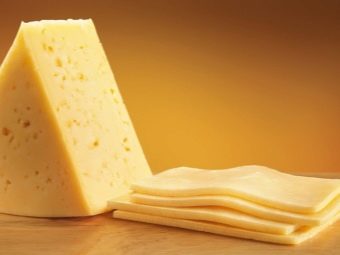
Whether it is possible to use?
Inflammatory diseases of the stomach, unfortunately, are quite common. These pathologies affect not only Europeans, but also Asians. Gastritis affects both men and women. This pathology can be detected at any age.
Nutrition is of great importance in the treatment of this disease. For example, people who have been diagnosed with this disease should take their diet quite seriously throughout their lives. The diet should not include dishes that can damage the gastric mucosa. The diet should be different during exacerbation and remission. People with such a disease should also not forget about this.
People with such diseases should eat cheese with caution. It can be eaten only if after use there are no uncomfortable manifestations. Before this, you need to consult a doctor.


With increased acidity
This form of gastritis occurs with periodic dyspeptic symptoms. For example, with any violation of the diet, pain in the abdomen or a burning sensation behind the sternum may appear. Such a pathology is dangerous, since with a large formation of gastric juice, ulcers may appear on the mucous membranes over time.
For people with such a pathology, it is better to exclude acute varieties. You should also avoid aged hard cheeses - it is better to choose "young" products that have a short shelf life. In this case, you should choose options that do not contain a lot of salt, and also there are no auxiliary additives such as allspice or chili.Delicacies in this pathology are highly likely to contribute to the onset of abdominal pain.
If you want to treat yourself, then it is better to choose soft varieties of cheese for such a disease, since particles of a solid product can damage the gastric mucosa, which will lead to increased pain. The soft version has a delicate texture, which means that there can be no mechanical damage to the gastric walls after its use.
It should be noted that it is better to use soft cream cheese without any additives. A creamy soft dairy product made from fresh milk should be consumed in small quantities.
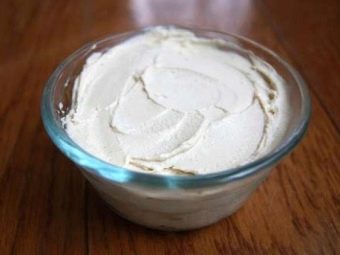
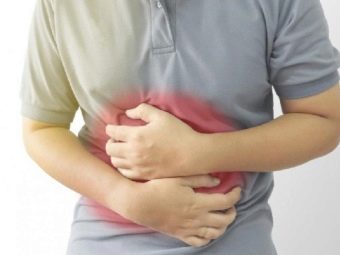
With low acidity
Hypoacid gastritis can also occur with periods of exacerbation. This pathology often manifests itself accompanied by nausea and a feeling of heaviness after eating. Cheeses, especially hard ones, do not belong to products that are quickly digested. To digest the components that they contain, the body needs quite a lot of time. At the same time, all organs of the gastrointestinal tract work very intensively.
People with this disease are better off choosing soft cheeses. Curd options with low fat content will be an excellent find for them. They contain many proteins and useful components, but at the same time they do not cause a feeling of heaviness in the stomach during digestion.
Various types of milk are used to make cheese. People who feel stomach heaviness or nausea after eating treats made from cow's milk should try the goat version of cheese. Such a product is much easier to digest in the body, without causing adverse symptoms.

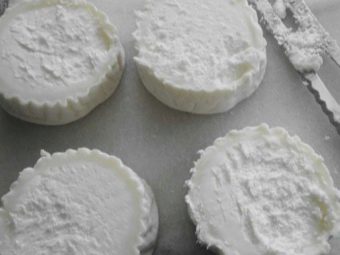
It should be noted that during an exacerbation of gastritis, it is better to refuse to eat any cheeses, since the substances contained in them can contribute to an increase in the pain syndrome that has arisen in the abdomen during an exacerbation of this disease. It is better to postpone the use of this dairy delicacy for a period of stable remission. At the same time, people suffering from gastritis should not eat cheese in large quantities. This product for them is a delicacy that you can afford as a little pampering.
People suffering from chronic gastritis and following a therapeutic diet are advised to consume sour-milk products and cottage cheese. These dairy products are much easier to digest, but at the same time bring great benefits to the body.
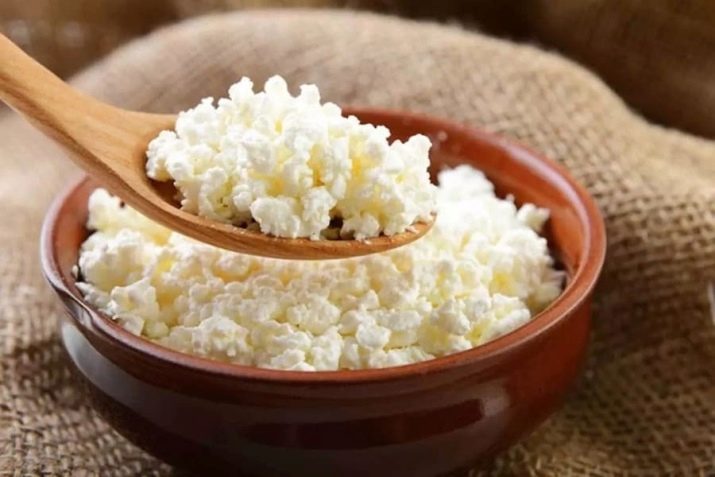
What is better to give up?
With gastritis, you should not eat some types of cheeses. For example, you should not eat smoked foods, as they can provoke the appearance of adverse symptoms, as well as worsen the well-being of a person suffering from this disease. Also, with such a pathology, sausage cheeses should not be consumed.
Processed cheese is not the best choice, as this product contains many components that can provoke the appearance of pain in the abdomen. Often manufacturers of such products add various spices and additives to them. These substances can provoke a deterioration in the production of gastric juice, which can lead to a new attack of chronic gastritis.
Many people like to eat noble mold cheeses. Such products, of course, have a unique taste and aroma, but they can provoke the appearance of dyspeptic symptoms.Doctors do not recommend including spicy and spicy cheeses in the diet of people suffering from gastritis, since after eating such a treat, pain in the stomach and even heartburn may appear.
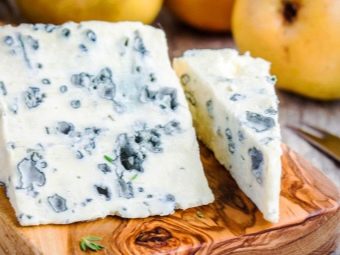
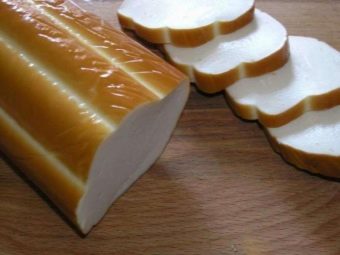
You will learn how to eat right with gastritis from the following video.

















